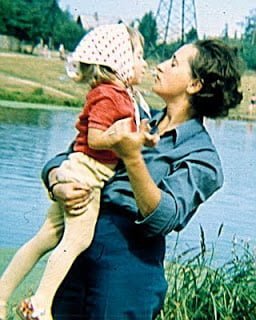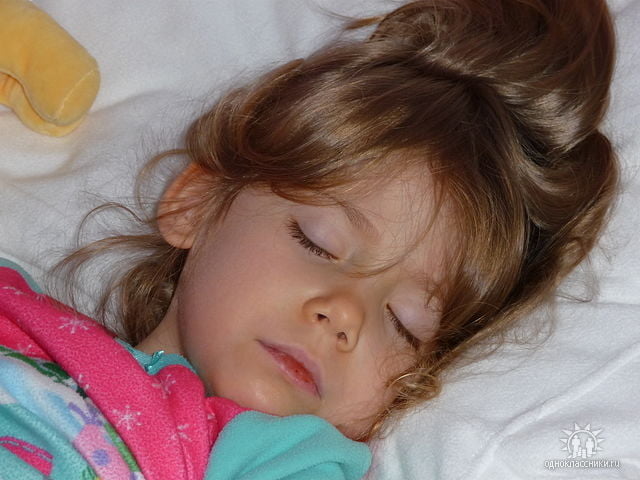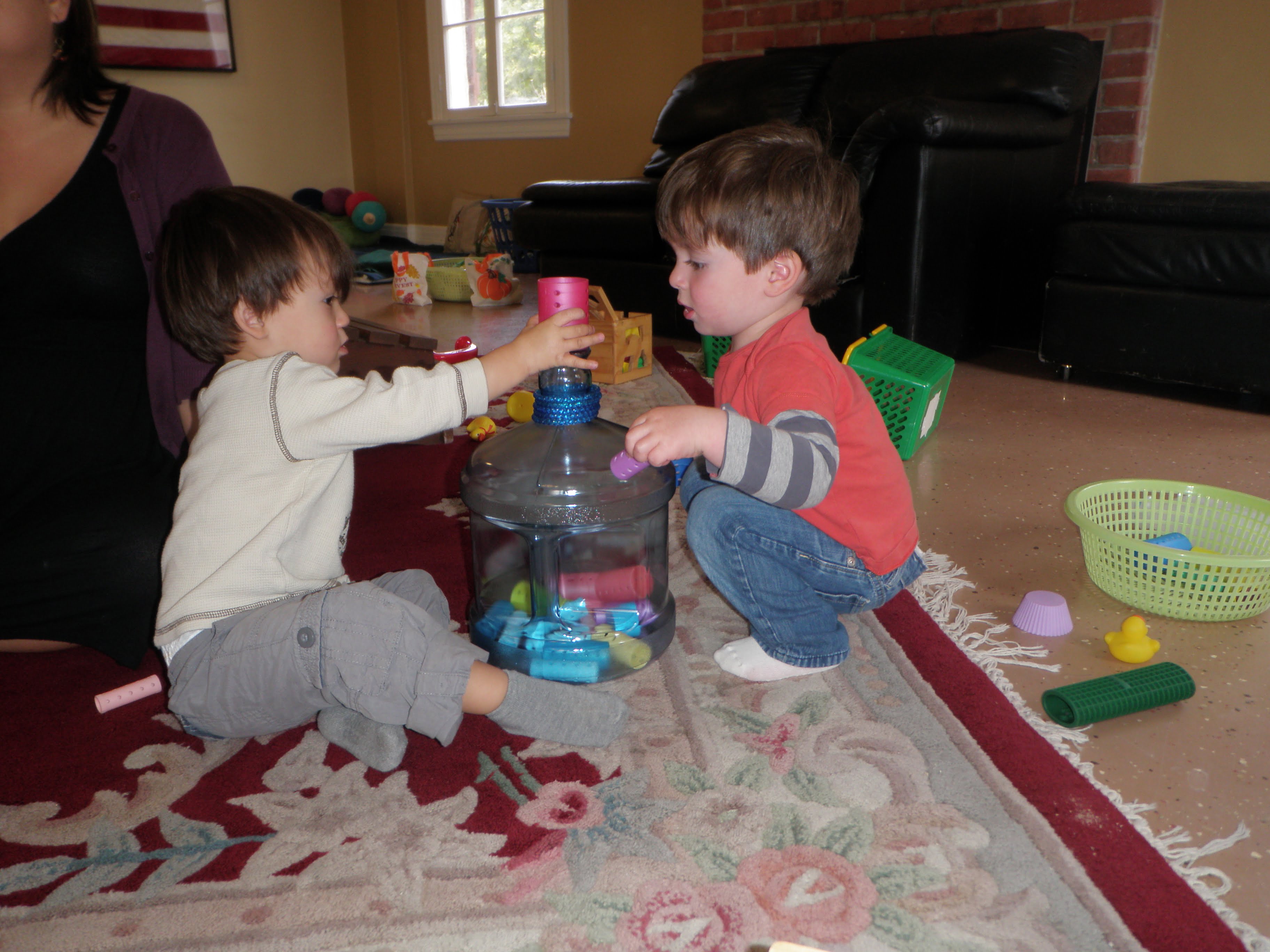One of the parents in my RIE®Parent-Infant Guidance class approached me about cooperation during diaper changes. The dad said it was so easy with Sam when he was younger and now when he is one year he is moving so fast, that diaper changes become a race.
We talked a bit about diaper change and what parents can do before and during the process. Cooperation builds through different interactions throughout the day when children get the opportunity to be involved, have time to process, and time to participate.
I want to illustrate a few opportunities for you and your child to build connection and cooperation:
1. Picnic
After a picnic, you are ready to pick up the blanket, but your child is still in the middle of it. Although the fastest solution is probably to pick up your child and move him, try something different: let the child know you want to put the blanket away, show him by holding the corners and wait. See what happens. It might take your child a minute to process what you are communicating and then he will move. What just happened: the child gets the opportunity to participate and respond to what you are asking. It feels good to be involved, it feels good to cooperate. And, yes, you will not always have time for it, yet there will be plenty of moments (such as a picnic in the park) when you don’t need to be faster.
2. Hand washing
Before meal time and after playing outside you probably want to wash your child’s hands. When children are young, the main part of hand washing is on the parent: bring the child to the sink, open the water, get the soap, wash and dry their hands. Try something different: start with letting your child know what you want, and give your child a moment to process – you will be surprised that your child might choose to walk or crawl to the bathroom. Ask your child for his hand and again give him a moment again; wait for your child to move his hands towards the water. See what other part of the participation your child wants to take – it will change every day. Every day your child is gaining new skills, a new understanding, and a new level of participation.
3. Waving goodbye
Aunt Marie is leaving. It is so tempting to grab Sam’s hand and wave to Marie using his hand. This kind of prompt might not be necessary. Try something different: You wave to Aunt Marie and wait; there is a big chance that in a minute Sam will want to wave too. And if not, he will do it next time.
Let me know if you need more information about RIE® Parent-Infant Guidance™ Classes.
Wishing you all the best in this difficult yet exciting journey of parenting!
Warmly,
Teacher Kira














